The recently concluded 14th Central Conference has recorded an important step forward after 8 years of implementing Resolution No. 18-NQ/TW of the 12th Party Central Committee on continuing to innovate and reorganize the political system to be streamlined and operate effectively and efficiently, especially in the period from 2024 to present.
The results achieved in recent times have affirmed the strong political determination of the Party and State in building a national governance apparatus suitable to development requirements in the new period.
The apparatus in the entire political system, from the central to local levels, has been streamlined, with clear functions and responsibilities, reduced intermediate levels, improved management efficiency, better served the people and businesses, and transformed the political system from a "cumbersome-dispersed" state to a "streamlined-connected-effective-efficient" state.
Along with that, management thinking has also undergone a fundamental change. If previously, the apparatus mainly operated according to the administrative management model, now it has shifted to management according to functions and output results.
The capacity to manage and execute tasks is not only measured by processes and procedures, but mainly based on effectiveness, actual impact and people's satisfaction.
Streamlining the payroll is not carried out as a purely administrative measure, but is linked to improving the quality of staff, innovating working methods, applying technology, and reforming the civil service regime.
Analyzing the significance, importance and practical value of the summary of Resolution No. 18-NQ/TW, the Central Executive Committee affirmed that implementing lessons learned from the 2-level and 3-level interconnected local government models will be the decisive lever for a streamlined, transparent and effective political system, bringing the country to rapid and steady progress towards strength, prosperity and a happy and prosperous people.
The practical implementation of the 3-level government model (Central, Provincial, Commune/Ward) in the past 4 months has proven the correctness of the policy. The apparatus operates more smoothly, authority is reasonably decentralized, the grassroots level is more proactive in handling work, reducing waiting time and procedural compliance costs for people and businesses.
The people clearly noted the changes, the spirit of service was improved, the working attitude was more responsible and transparent. The administration shifted from "administrative management" to "service and development creation," putting the interests of the people at the center.
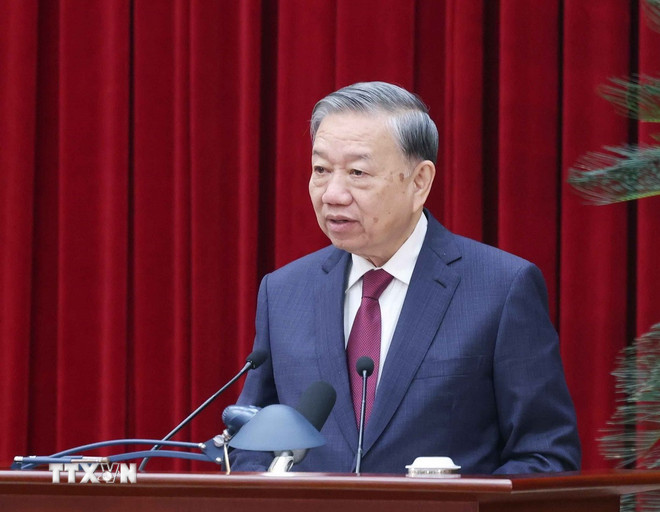
General Secretary To Lam emphasized at the 14th Central Conference that the biggest breakthrough in implementing Resolution 18 is the organization of two-level local government and the reorganization of administrative boundaries at the provincial and communal levels, creating space, potential and development opportunities for the country in the new era.
A vivid proof is the arrangement in Can Tho city. After 10 months of implementation, the local socio-economic situation continues to maintain positive growth. Industrial production index increased by 10%; agricultural production is stable with rice output reaching 4.7 million tons and aquatic products over 780,000 tons.
Many concentrated production areas following VietGAP and GlobalGAP standards have been expanded; high-tech agriculture has developed strongly; large-scale investment has been made in transport, urban and energy infrastructure, creating new momentum for the economy of the Mekong Delta.
According to the assessment of Mr. Dong Van Thanh, Standing Deputy Secretary of the City Party Committee, Chairman of the City People's Council, after 4 months of operating the 2-level local government model, the apparatus has basically operated smoothly and effectively, reducing intermediate levels in the state apparatus.
Along with the organizational arrangement, the legal system was also reviewed and amended to ensure synchronization with the streamlined apparatus model. At the 10th Session of the 15th National Assembly, many important draft laws were discussed and amended to resolve recent problems, promote decentralization and delegation of power along with power control, ensure feasibility, efficiency and enhance accountability; simplify processes and procedures, shorten time, reduce costs for society, and improve the investment and business environment.
The draft Law on Civil Judgment Enforcement (amended) abolishes the model of district-level Civil Judgment Enforcement Sub-Departments, replacing it with a one-level agency system at the provincial level; establishes a regional Civil Judgment Enforcement Office under the provincial Civil Judgment Enforcement Department to perform tasks at the grassroots level, while promoting the socialization of civil judgment enforcement work, helping to improve professionalism and reduce the workload for state agencies.
This is a necessary adjustment to improve the effectiveness of law enforcement, especially in the context of increasing complicated cases related to property, civil and commercial disputes.
At the same time, the amendment of the Law on Planning is being implemented in the direction of building a unified national planning system, simplifying processes, cutting down procedures, overcoming overlaps and inadequacies of legal regulations and overlaps and duplications between plans, promoting decentralization and delegation of power. This is of great significance when the administrative organization model changes, requiring the allocation of development resources to be synchronous, consistent and have a long-term vision, avoiding fragmentation and waste.
Speaking at the closing ceremony of the 14th Central Conference, General Secretary To Lam asked local Party committees and authorities to focus on supporting the three-level government model to operate effectively and efficiently, reaching the goals set by the Party, of which the three key goals are to maintain a peaceful and stable environment; develop rapidly and sustainably; and constantly improve the material and spiritual life of the people.
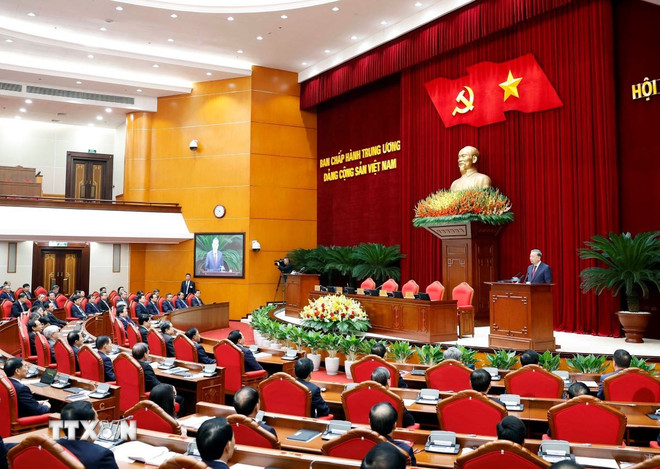
The General Secretary emphasized the consistent principle of "locality decides, locality acts, locality takes responsibility", along with the motto of "clear people, clear work, clear tasks, clear deadlines, clear resources."
The Central Government leads and sets an example; the local authorities respond; all decisions and policies are aimed at the goal of "serving the people"; and work results are the highest measure of the qualifications, capacity and qualities of cadres.
In that spirit, the entire political system needs to continue to create a 2-level local government model that operates effectively and efficiently. Demarcate interconnected authority between 3 levels for each field, eliminate overlap, and not leave tasks vacant. Decentralization is accompanied by control, strongly shifting to post-inspection, and organizing internal audits at the provincial/commune level.
Along with that, promote digital transformation more strongly, build a shared database, connect residents-land-social security-enterprises, and update in real time from the grassroots to the central level.
Organize a digital one-stop shop, eliminate the "ask-give" mechanism, enhance the responsibility of leaders and create a favorable and transparent service environment./.
Source: https://www.vietnamplus.vn/he-thong-chinh-tri-tu-cong-kenh-phan-tan-sang-tinh-gon-lien-thong-hieu-luc-hieu-qua-post1075915.vnp








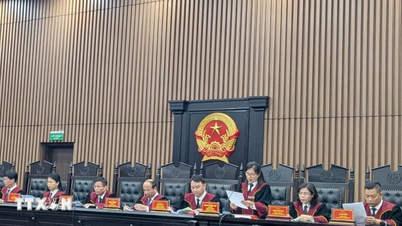


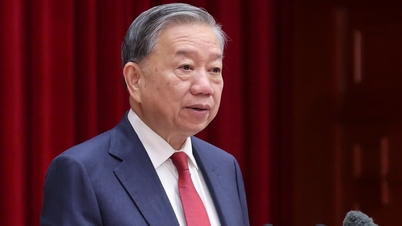





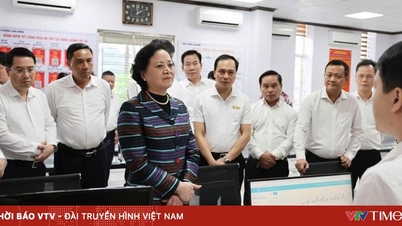


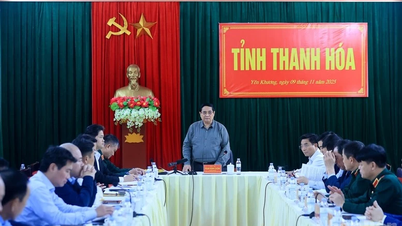


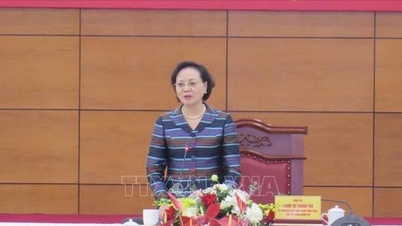







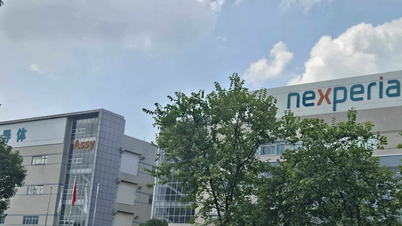
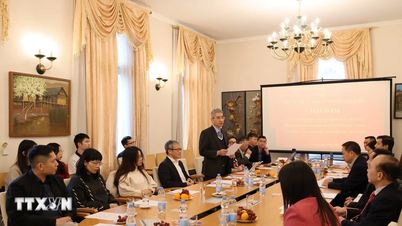

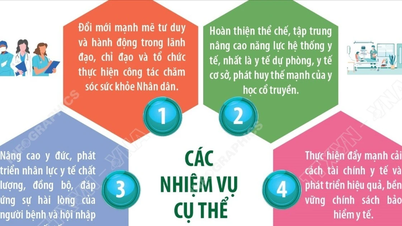





































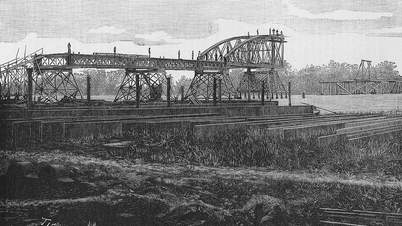





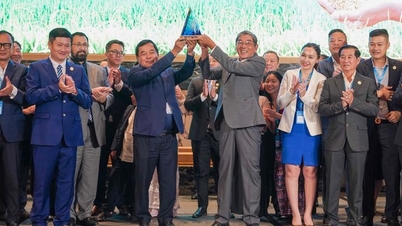



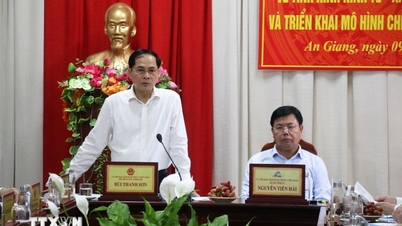





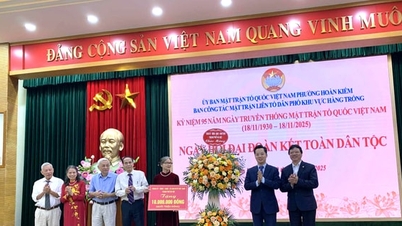



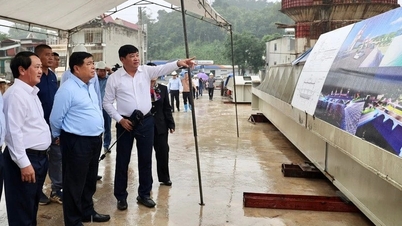

















Comment (0)